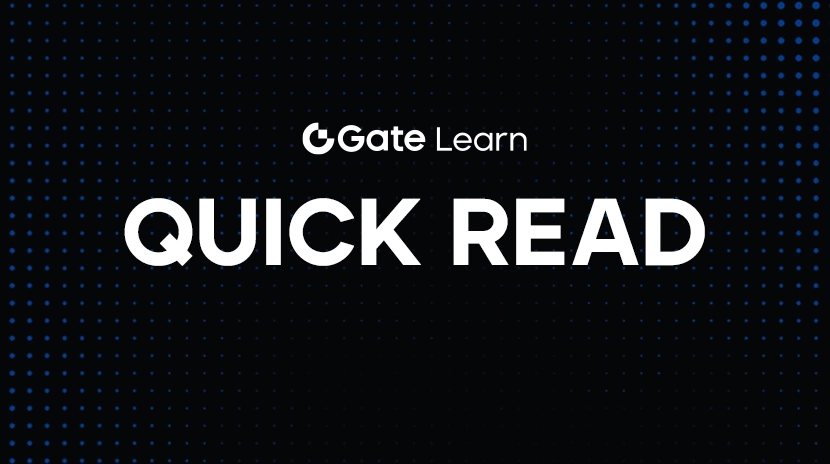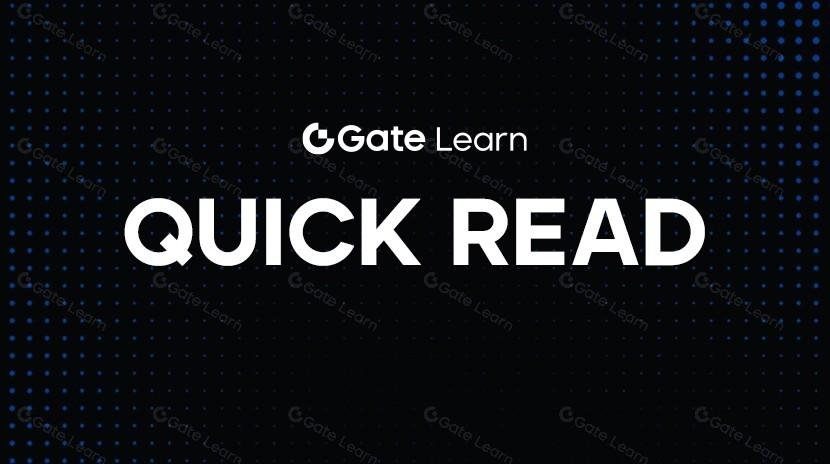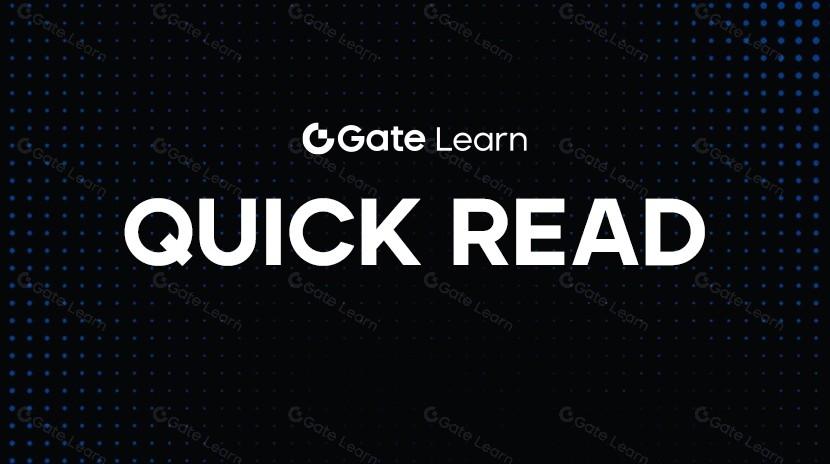Portefeuille Solscan: Comment suivre les portefeuilles Solana On-chain
1. Qu'est-ce que le portefeuille Solscan?
La blockchain Solana est renommée pour ses performances élevées et ses coûts de transaction réduits, ce qui la rend largement adoptée dans les secteurs DeFi, NFT, jeux et meme coin. Au 28 mars 2025, l'activité on-chain de Solana et sa base d'utilisateurs ont considérablement augmenté, le total de l'offre de stablecoins dépassant 12 milliards de dollars. Divers projets, tels que le WiFi décentralisé de Dabba Network et l'échange de Bitcoin cross-chain de Zeus Network, continuent d'émerger.

Source:Site officiel du projet Solana
Dans ce contexte, un outil capable de suivre les activités du portefeuille et les données de transaction à tout moment devient particulièrement important. La fonction Portefeuille Solscan est apparue sur la base des puissantes capacités d'indexation de données et de visualisation de l'explorateur de chaînes de blocs Solscan, offrant aux utilisateurs une expérience de requête et d'analyse rapide, précise et visuelle des informations Solana on-chain.
Solscan est un explorateur de blockchain conçu spécifiquement pour l'écosystème Solana, fournissant des requêtes en temps réel pour les blocs, les transactions, les contrats et les adresses. Sa fonction Portefeuille est l'un des modules principaux, permettant aux utilisateurs de saisir n'importe quelle adresse de portefeuille Solana (commençant par '9WzDx...') pour consulter le solde de l'adresse, l'historique des transactions, les détentions de NFT et les enregistrements de participation à la DeFi.
2. Les derniers développements et l'aperçu du marché de l'écosystème Solana
Avant d'introduire comment suivre et analyser les transactions Solana à l'aide du portefeuille Solscan, examinons d'abord les derniers développements importants et la performance globale du marché de l'écosystème Solana depuis la fin de mars 2025.
2.1 Aperçu du développement de la pièce Solana
Solana (SOL) a été lancé le 22 mars 2020 par Anatoly Yakovenko et d'autres, offrant une grande capacité de traitement et des frais de transaction bas, utilisant une combinaison de mécanismes de consensus Proof of History (PoH) et Proof of Stake (PoS).
Date de lancement: 22 mars 2020
Prix initial d'offre : $0.22
Offre totale : 597,238,164.97 SOL
Offre en circulation : 511,578,830.0947 SOL (~85.7%)
Équipe principale :
Anatoly Yakovenko (PDG & Fondateur)
Greg Fitzgerald (CTO & Co-Founder)
Eric Williams (Chief Scientist & Co-Founder)
2.2 Performance du marché et prédiction des prix
Selon les dernières données de Gate.com (au 28 mars 2025) :


Source:Trading Spot Gate.com
Volatilité à court terme : Le prix récent du SOL a fluctué dans la fourchette de 137 $- 150 $.
Tendance à long terme : Plusieurs institutions de recherche prédisent que le prix du SOL pourrait dépasser 300 $ entre 2025 et 2026, certaines prévisions agressives suggérant même la possibilité d'atteindre 700 $ à 800 $ d'ici 2030, mais cela doit encore être combiné avec l'environnement économique global et les situations d'implémentation spécifiques.
Si vous vous référez au modèle de prédiction de prix de l'IA (à titre indicatif seulement), le prix du SOL en juin ou décembre 2025 pourrait être attendu dans la fourchette de 150 à 220 $. Cependant, il y a souvent un écart entre les prédictions du modèle et la réalité, donc l'investissement doit être rationnel et prudent.
2.3 institutions adopt and politique favorise
- BlackRock s'étend à Solana
Le 25 mars 2025, CoinDesk a rapporté que le géant mondial de la gestion d'actifs BlackRock étend son fonds de marché de devises tokenisées de 170 millions de dollars BUIDL à la blockchain Solana. Il s'agit de la septième blockchain prise en charge par BUIDL, après Ethereum, Polygon et d'autres, démontrant l'attrait de Solana dans le secteur de la finance traditionnelle. L'initiative de BlackRock renforce non seulement la reconnaissance du marché de Solana, mais offre également aux investisseurs institutionnels plus de moyens d'entrer dans l'écosystème Solana.
- Réserves d'actifs numériques américains
Le 22 mars 2025, Yahoo Finance a rapporté que le président américain Trump a annoncé la création de la ‘Réserve d'actifs numériques des États-Unis,’ comprenant Solana (SOL), aux côtés d'Ethereum, XRP et Cardano. Cette politique a attiré l'attention du marché sur SOL, mais son prix est encore affecté par les fluctuations du marché à court terme. De plus, Forbes a souligné le 12 mars 2025 que Trump a lancé le meme coin ‘Official Trump’ sur la blockchain Solana avant de prendre ses fonctions, augmentant ainsi l'exposition de Solana mais suscitant également la controverse sur le délit d'initié.
- La mise à niveau de Firedancer arrive bientôt
La mise à niveau de Firedancer est un point central de la communauté Solana, les utilisateurs de la plateforme X@sith_souDans un article du 27 mars 2025, la mise à niveau devrait être terminée d'ici la fin de 2025, augmentant significativement le TPS (transactions par seconde) de Solana, renforçant davantage sa position parmi les chaînes publiques haute performance. Le TPS actuel de Solana est de 4 332,78, avec un TPS réel de 1 147 (données Solscan, mars 2025). La mise à niveau Firedancer devrait améliorer significativement les performances du réseau en optimisant le client validateur.
2.4 Derniers développements dans les portefeuilles et les outils
- Suivi du portefeuille officiel de Solana
Le 22 mars 2025, les utilisateurs de la plateforme X @VoiceofCrypto2Le message a indiqué que Solana a lancé un nouveau Wallet Tracker, offrant des informations en temps réel et des capacités de gestion d'actifs sans problème, permettant une gestion d'actifs plus détaillée et un suivi des données de transaction. Cependant, ces informations n'ont pas été directement confirmées par les canaux officiels de Solana et nécessitent une vérification supplémentaire.
- Intégration d'outils tiers
L'intégration des outils dans l'écosystème Solana continue d'avancer, avec de plus en plus de plateformes de marché prédictif, de marchés NFT et d'outils de trading soutenant le réseau Solana, ce qui permet aux utilisateurs de recharger et de régler rapidement. Par exemple, le 25 mars 2025, TheStreet a rapporté que la plateforme de marché prédictif Polymarket a ajouté le support de Solana, permettant aux utilisateurs de faire des dépôts de portefeuille en utilisant Solana. Le 21 mars 2025, Solana a officiellement annoncé que Titan Exchange, en tant que premier agrégateur de Meta DEX sur Solana, est en ligne, équipé de l'algorithme de routage propriétaire Talos, améliorant l'efficacité du trading DeFi. De plus, MetaMask prévoit d'ajouter un support natif pour Solana en mai 2025 (Daily Hodl, 2 mars 2025). Les places de marché NFT de Solana (comme Magic Eden) et les outils de trading (comme Raydium) soutiennent depuis longtemps le réseau Solana.
2.5 Défis écologiques et concurrence
- Congestion du réseau
Solana a été critiquée à plusieurs reprises pour des congestions réseau ou des interruptions brèves, ce qui constitue un défi majeur pour les projets ayant des exigences en temps réel élevées (comme le trading haute fréquence ou les jeux). Cryptopolitan a souligné le 20 mars 2025 que Solana continue de rencontrer des problèmes de congestion dans des scénarios de volume de transactions élevé (comme lors de la frénésie des jetons meme). Historiquement, Solana a connu des interruptions brèves en raison de la congestion du réseau en 2021 et 2022 (rapport de Cointelegraph, 2022). Malgré des améliorations de la stabilité du réseau ces dernières années, une optimisation supplémentaire est toujours nécessaire pour répondre aux exigences en temps réel.
- Compétition multi-chaîne
Solana fait face à une concurrence féroce de la part d'Ethereum, de Polygon et de Sui. Bitcoinsensus a souligné le 10 février 2025 que la blockchain de Sui, grâce à sa technologie DAG (graphes acycliques dirigés) et à son mécanisme de consensus Narwhal-Tusk, offre une vitesse et une fiabilité supérieures, ce qui en fait un concurrent stratégique pour Solana. Ethereum continue d'améliorer ses performances grâce au sharding et à la technologie Rollup (site officiel d'Ethereum, données de 2025), tandis que Polygon attire les développeurs grâce à sa conception modulaire (site officiel de Polygon, données de 2025). Solana doit continuellement améliorer son infrastructure et ses outils de développement, tels que la mise à niveau Firedancer, pour maintenir sa compétitivité dans la chaîne publique haute performance.
3. Comment utiliser le portefeuille Solscan pour suivre et analyser les transactions Solana
Ce qui suit combinera des perspectives pratiques pour introduire comment interroger rapidement et analyser en profondeur les données de portefeuille, de transaction et de contrat en chaîne en utilisant Solscan Wallet.
3.1 Vérification du solde du portefeuille et des transactions
Visitez le site Web
Ouvrez solscan.io dans votre navigateur.
Entrer une Adresse
Collez n'importe quelle adresse de portefeuille Solana (par exemple, “9WzDx…”) dans la barre de recherche et appuyez sur Entrée ou cliquez sur Rechercher.
Voir Aperçu
Le panneau du portefeuille Solscan affichera le solde SOL, les autres avoirs en jetons, les transactions récentes et les avoirs NFT pour l'adresse.
Cliquez pour plus de détails
Cliquez sur une transaction spécifique pour afficher des détails tels que l'horodatage, la contrepartie, le type de transaction (transfert, staking, achat de NFT, achat de jeton mème, etc.) et les frais de transaction on-chain (généralement inférieurs à 0,01 $).

Source:Solscan
3.2 Analyse approfondie : Détails de la transaction et suivi du contrat
Journal de trading en temps réel : Le portefeuille Solscan détaillera le hash (Tx Hash) de chaque transaction sur chaîne, et les utilisateurs pourront cliquer pour consulter les instructions d'opération, l'heure de bloc, etc.
Interaction de contrat intelligent : Si la transaction implique DeFi, NFT, ou d'autres interactions de contrat, l'adresse de contrat correspondante sera affichée ; en cliquant sur l'adresse de contrat, vous pouvez également vérifier ses enregistrements d'exécution, appeler des fonctions, et des informations de hachage de code.
3.3 Surveillance des activités NFT et DeFi
Panneau NFT : Affichez le nom, la série, l'évaluation actuelle et les enregistrements de trading historiques des NFT détenus dans le portefeuille.
Tableau de bord DeFi : un agrégateur statistique des activités de prêt, de mise en jeu, de minage et de rendement associées aux adresses, permettant aux utilisateurs d'évaluer rapidement les rendements et les positions.
3.4 Définir des rappels et effectuer une analyse par lot
Rappel : Après l'inscription, vous pouvez configurer des alertes de transaction pour l'adresse cible (comme les gros transferts), Solscan Wallet enverra des notifications via e-mail ou des notifications d'application.
Analyse en lot : les institutions ou les utilisateurs professionnels peuvent saisir simultanément de multiples adresses pour les comparer, filtrer rapidement les opportunités d'investissement potentielles ou les alertes de contrôle des risques.
4. Comment acheter et gérer SOL sur Gate.com
En tant qu'actif sous-jacent le plus essentiel de l'écosystème Solana, SOL a été listé sur Gate.com et d'autres plateformes le 22 mars 2020. Voici le processus général pour acheter et gérer SOL sur Gate.com :
1. S'inscrire et se connecter à Gate.com
Effectuer la vérification KYC et lier l'authentification de sécurité.
2. Recharge ou acheter USDT
USDT peut être obtenu via des canaux fiat ou des transferts d'actifs numériques.
3. Acheter SOL
chez Gate.com SOL/USDTSélectionnez un ordre limité ou de marché dans la paire de trading pour effectuer un achat.
4. Retirer vers le portefeuille personnel
Si vous devez effectuer des opérations DeFi ou NFT on-chain, vous pouvez transférer SOL vers votre portefeuille Solana personnel (comme Phantom, etc.), puis utiliser le portefeuille Solscan pour interroger et analyser les activités liées à l'adresse.
5. Suivi en temps réel
Après le transfert est terminé, vous pouvez entrer l'adresse du portefeuille correspondant dans Solscan Wallet pour vérifier le solde de l'actif et la dynamique des transactions ultérieures.
5. Summary
Dans l'ensemble, le portefeuille Solscan joue un rôle indispensable dans l'écosystème Solana. Des investisseurs quotidiens aux institutions professionnelles, des développeurs de contrats aux artistes NFT, chaque participant peut utiliser les puissantes capacités de visualisation et d'indexation de données du portefeuille Solscan pour obtenir des informations approfondies sur les flux de fonds, les comportements de trading et les tendances du marché.
À la fin du mois de mars 2025, l'écosystème Solana continue de s'étendre rapidement, avec un approvisionnement total en stablecoin dépassant 12 milliards de dollars, une frénésie fréquente autour des meme coins, une reconnaissance institutionnelle en constante augmentation, et le portefeuille Solscan fournissant précisément des "empreintes digitales numériques" transparentes pour ces phénomènes, aidant les utilisateurs à obtenir des informations fiables en temps réel. À l'avenir, avec l'attente d'une augmentation supplémentaire du TPS du réseau grâce à la mise à niveau Firedancer, ainsi que l'arrivée de plus de scénarios tels que les applications inter-chaînes et l'enregistrement d'actifs du monde réel sur la chaîne, les capacités d'analyse de données du portefeuille Solscan continueront d'évoluer, offrant aux utilisateurs une perspective multidimensionnelle plus complète.
Articles Connexes

Pi Network (PI) au taux de change du franc CFA d'Afrique de l'Ouest (XOF) : Valeur actuelle et guide de conversion

Comment vendre la pièce PI : Guide du débutant

Valeur de Pi Crypto : Lancement sur Mainnet le 20 février 2025 & Prédictions de prix futures

Qu'est-ce que FAFO : jeton MEME dérivé de la plateforme sociale de Trump

Est-ce que XRP est un bon investissement? Un guide complet sur son potentiel
